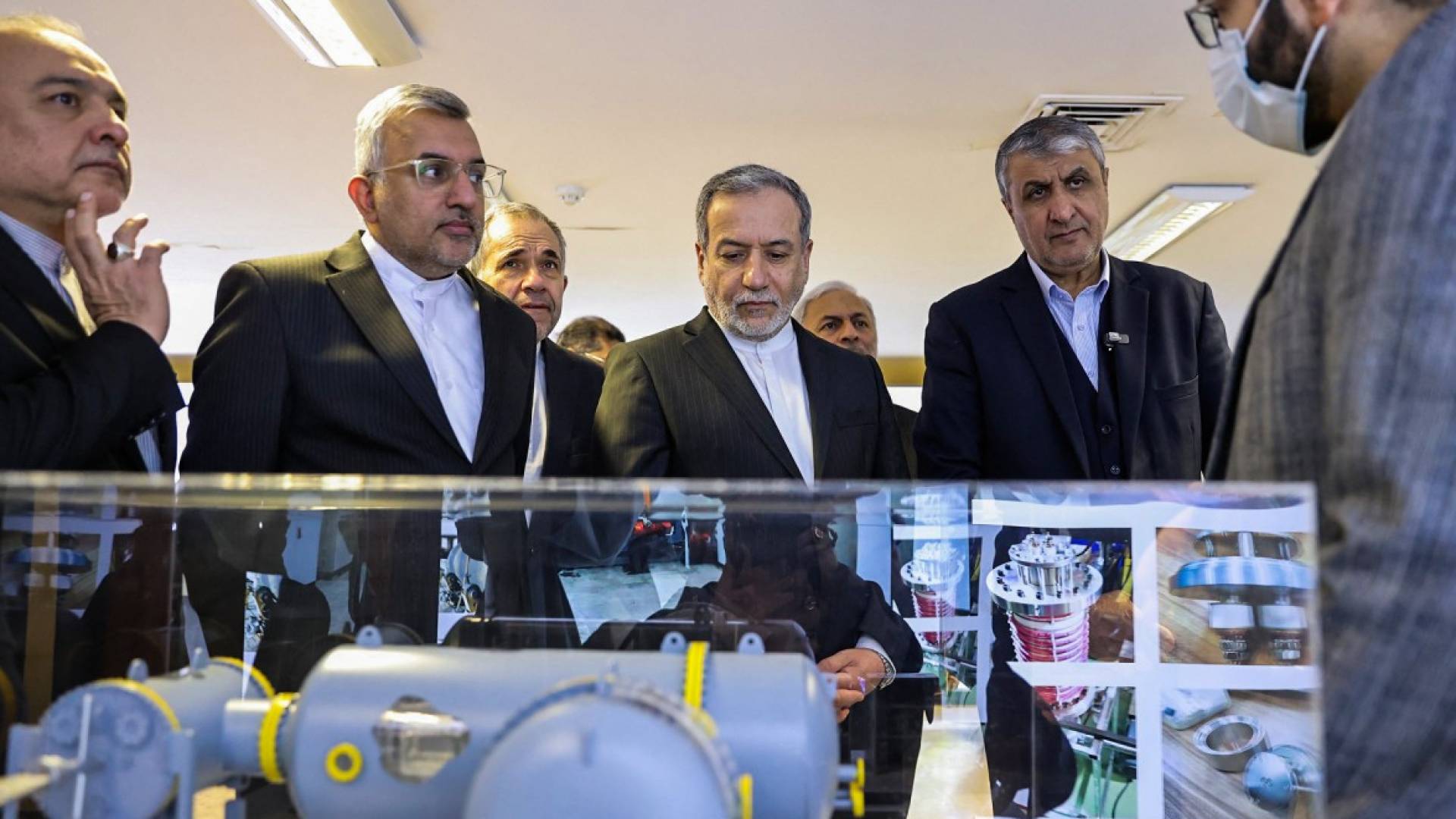Foreign Minister Abbas Araqchi visiting the Atomic Energy Organization of Iran (Credit: AFP)
Iran open to nuclear talks with US if treated with “dignity and respect”
Note: AI technology was used to generate this article’s audio.
- Iran signals willingness to restart nuclear talks with the US if treated with “dignity and respect.”
- Foreign Minister Abbas Araghchi asserts Iran has no undeclared nuclear sites and retains the right to enrich uranium domestically.
Iran is willing to reopen nuclear negotiations with Washington, provided the country is treated with “dignity and respect,” Iranian Foreign Minister Abbas Araghchi told The Guardian.
Speaking at a security conference in Tehran, Araghchi emphasized that diplomacy remains the only viable solution to the standoff. He revealed that intermediaries have approached Tehran with requests to resume talks with the Trump administration, though coherent offers from Washington have yet to materialize.
Araghchi also addressed security concerns regarding the inspection of previously bombed nuclear sites, stating that Iran cannot currently allow visits by the UN nuclear inspectorate for safety reasons. He insisted, however, that Tehran has no undeclared nuclear facilities.
The foreign minister highlighted the resilience Iran displayed following the Israeli-US attack on its nuclear sites in June. “We successfully passed this war. Our nuclear technology, which they intended to destroy, remains in place. The facilities and equipment, if destroyed, will be rebuilt; what is important is the will of the Iranian people and then the national cohesion that they targeted, but failed to break. The Iranian people have become stronger, more united, and more supportive of the government and the state in the face of this invasion,” he said.
Araghchi reiterated Iran’s “inalienable right to enrich uranium domestically that it will never give up,” framing this as the core sticking point in prior negotiations. He criticized Washington and European powers for imposing unilateral measures during the previous rounds of talks and maintained that it was not Iran that abandoned diplomacy. “It was America and the western countries that had always sought to impose their will during the negotiations. Diplomacy can still be alive and remains the ultimate solution to resolve disputes, but its criteria, rules and principles must be adhered to. If they speak to the Iranian people with the language of dignity and respect, they will receive a response in the same language.”
Reflecting on the June conflict, Araghchi described the 'Israeli' attacks as coordinated with the US, reinforcing Tehran’s cautious approach toward rebuilding trust. He underscored Iran’s strengthened military and psychological readiness since the 12-day escalation, declaring that all defense capabilities have been restored and lessons learned from the conflict.
While a previously proposed consortium allowing domestic enrichment with US oversight is no longer on the table, officials suggest it could be revisited if diplomatic talks resume. For now, Tehran continues to navigate a delicate path, balancing national pride with cautious diplomatic engagement.




